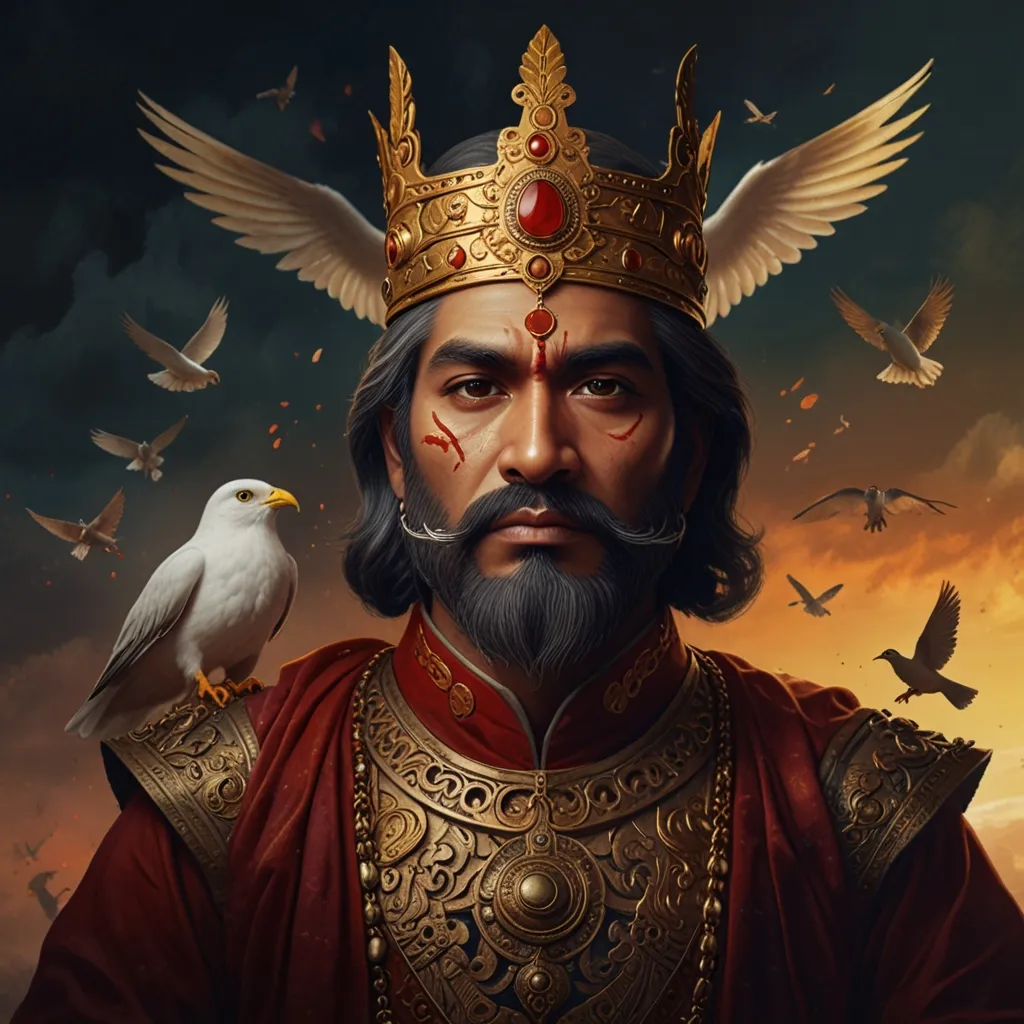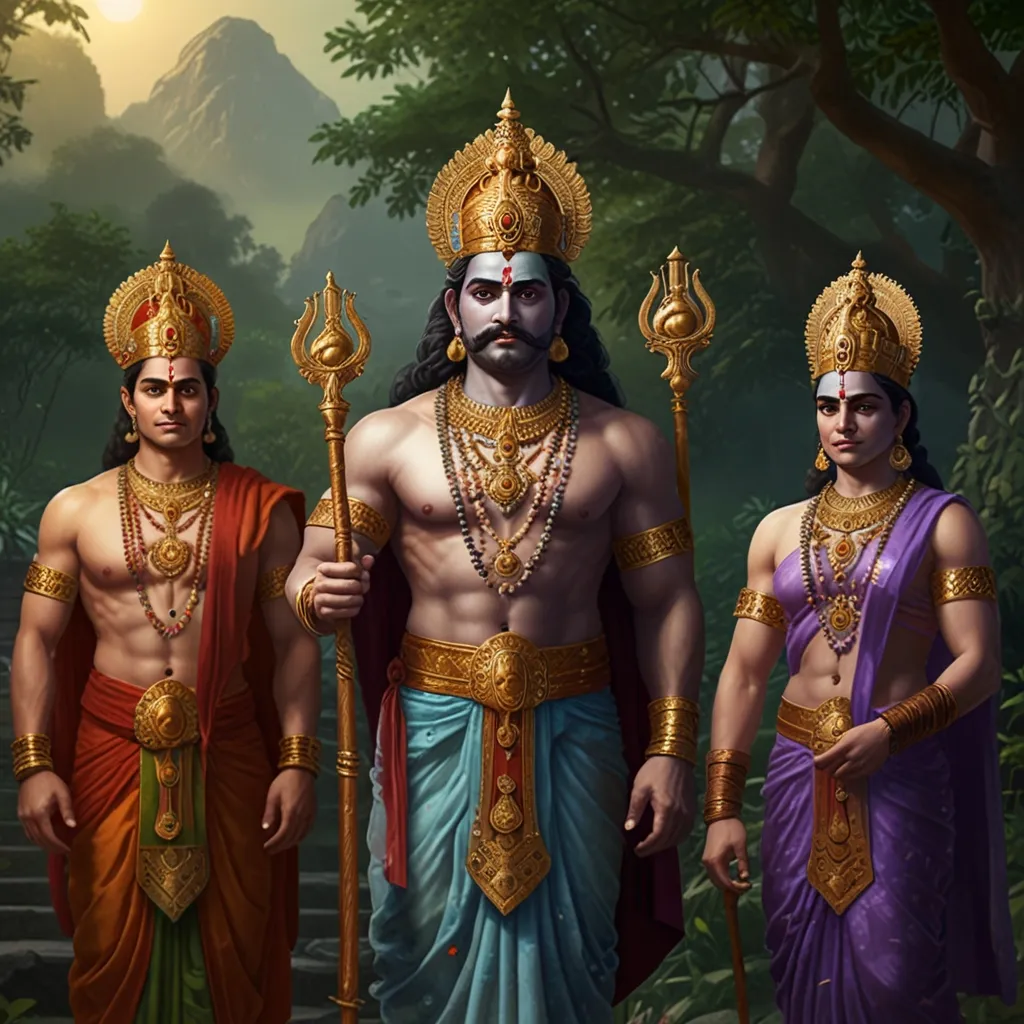As I delve into the epic of the Mahabharata, I find myself captivated by the profound impact of silence. In a tale often highlighted by powerful speeches and grand battles, it’s easy to overlook the transformative power of not speaking. Yet, it’s precisely these moments of deliberate silence that shape the narrative in ways that are just as compelling as any declaration of war.
Silence can be a powerful weapon, and no one wielded it more effectively than Vidura. In the royal court, his strategic silences demonstrated a deep understanding of when words would fall on deaf ears. Vidura, a master of statecraft, knew that sometimes restraint was the wisest course of action. This calculated silence spoke volumes about his political wisdom, showing us that knowing when to speak is only half the battle – knowing when not to is the other half.
“Silence is the language of God, all else is poor translation.”
This quote often resonates with me, highlighting the idea that silence can convey truths beyond words. In the Mahabharata, characters like Vidura show us that there is strength in choosing when to remain silent.
Draupadi’s silence after her humiliation in the royal court is another poignant example. Her tears and speechless glance at Bhima ignited a fire that would lead to war. In that moment, her silent protest spoke louder than any verbal condemnation could. It reminds us that sometimes, the loudest voice in the room is the one that chooses not to speak.
Gandhari’s silent vow of blindfolding herself is a powerful testament to the strength found in quiet protest. By choosing to wear a blindfold throughout her marriage to a blind king, she made a profound statement about empathy and the complexities of arranged marriages. Her silence was a declaration that spoke volumes without uttering a word.
Karna’s silence about his true identity, even after discovering he was a Pandava, is a remarkable display of loyalty. His choice to keep this secret quiet shaped the conflict of the Mahabharata and highlights the personal cost he paid for his friendship with Duryodhana. It raises the question: How often do we choose silence over truth for the sake of loyalty, and at what cost?
As I reflect on these moments, I realize that the Pandavas’ ability to remain silent during their year in disguise at King Virata’s court is equally compelling. Their restraint, while enduring humiliation without revealing their identities, was a testament to their character and discipline. This experience shows that sometimes, it takes more strength to remain silent than to act impulsively.
I often ponder the wisdom behind these silences. Is it not intriguing to see how inaction can often be more powerful than action in shaping outcomes? The Mahabharata, in its ancient yet timeless wisdom, teaches us that the loudest voice can indeed be the one that chooses silence.
In my exploration of the Mahabharata’s use of silence, I wonder: What if we applied the same wisdom to our own lives? Would we find that knowing when to remain quiet is as important as knowing what to say? The answer, it seems, lies in understanding that silence is not the absence of sound but a choice that speaks volumes in its own right.
“The quieter you become, the more you can hear.”
This quote resonates deeply with the idea that silence can be a catalyst for deep understanding and wisdom. As we reflect on the Mahabharata, let’s consider how this wisdom can influence our daily lives.
In a world filled with noise and distraction, the Mahabharata’s characters remind us of the importance of listening and choosing when to speak. Sahadeva, often overlooked but profoundly wise, exemplified this silent strength. His wisdom, though often unheard, remains a reminder that true leadership is not about being the loudest but about knowing when to act and when to let destiny unfold.
So, can we learn from these characters to cultivate a wisdom of silence in our own lives? By doing so, might we find that in the quietest moments, we hear the loudest truths? The Mahabharata, in all its complexity, invites us to ponder these questions, offering a timeless lesson on the transformative power of not speaking. It challenges us to listen more mindfully and act more thoughtfully – all by embracing the wisdom of silence.
As we journey through the Mahabharata, we are reminded that the power of silence is not just about the stories it tells but about the lessons it teaches. In a world consumed by noise and action, the silent moments of this epic become a beacon, guiding us toward a deeper understanding of ourselves and the world around us. They encourage us to reflect on our own choices – to consider when silence might be the most powerful statement we can make. And so, the wisdom of silence becomes not just a fascinating aspect of an ancient tale but a powerful tool for living a more mindful and profound life today.
Ultimately, the Mahabharata shows us that silence can be mightier than speech. It can ignite revolutions, preserve dignity, and highlight the complexities of human relationships. It’s a reminder that in our own lives, choosing when to remain silent may well be the loudest choice we can make. And as we reflect on these lessons, we are left with an enduring question: Are we listening to the wisdom around us, or are we too consumed by the noise of our own voices?






